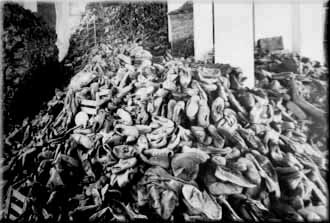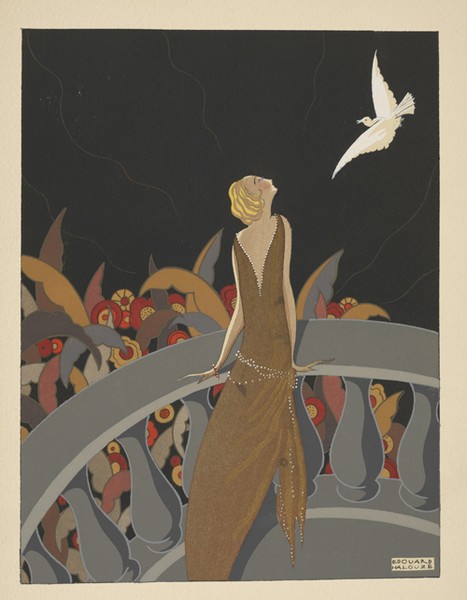News about Muntader al-Zaidi, the Iraqi reporter who threw his shoes at Bush during a press conference this week, has traveled quickly to alternating responses of horror and glee. The NYTimes reported that “Calling someone the “son of a shoe” is one of the worst insults in Iraq,” adding a new spin to what was already an obviously angry, insulting gesture.
This bold action has added yet another symbolic meaning to the humble shoe: that of irate protest, against American troops in Iraq, specifically. “In the Baghdad neighborhood of Sadr City, people calling for an immediate American withdrawal removed their footwear and placed the shoes and sandals at the end of long poles, waving them high in the air. And in the southern Iraqi city of Najaf, people threw their shoes at a passing American convoy.” Some Iraqis said these protests were a direct result of the democracy advocated by America. Ah, sweet sloppy irony.
In searching for a picture of a pile of shoes to include with this post, I was reminded that shoes have historically not only embodied fetishistic sexuality, but also bitter oppression. Concentration camps like Auschwitz hoarded heaps of shoes of their Jewish victims. Shoes were also. valuable bartering merchandise in concentration camps.
By the way, $10 million has been offered to purchase the original infamous pair of black dress shoes. Consumeristic democracy in action!




























1 comment
Ben Wheeler says:
May 29, 2009
When I worked for the government in former Soviet Georgia, I went along on several prison inspections, including an old prison in the capital, Tbilisi. It had been used to stage executions in Soviet times, which were done to violent criminals and political prisoners alike. The execution chamber was just a bleak room where the prisoner would be made to kneel facing the wall, and shot in the back of the head. It was a custom to save the prisoners’ shoes, either as a sick souvenir or a method of tracking who had been executed, and the closet in the execution room was still full of shoes — old, stringy, barely held together shoes that told of the poor conditions and likely the poverty of these prisoners’ lives.